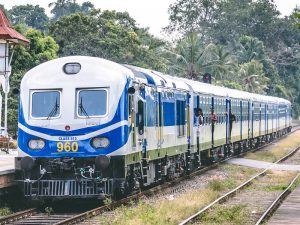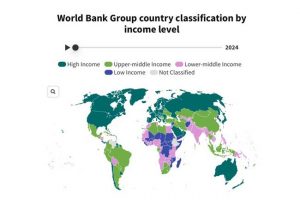Fundamental and no-reversal policies should be implemented – Dr. Jehan Perera

The change the country hopes for lies in the future. The change brought by the government, especially for the upper class and the international community that supports them, is enough for today, but it is not enough for the future progress and well-being of the majority of the people. The last year and a half was enough to stop the slide into economic collapse and social chaos. Reversing the strange fertilizer ban, imposing the necessary taxes, establishing law and order, and negotiating with the international community have been enough to bring the country out of the economic pit it has fallen into. But the country has not yet come out of that pit. It will take at least two more years for the economy, shrunken by the crisis created through corruption and mismanagement by an all-powerful government, to return to the level it was before it collapsed.
Meanwhile, an unexpected war on drugs launched by the police is diverting people’s attention away from the ongoing corruption and misrule. Thousands of drug traffickers, dealers, drug addicts and petty criminals are arrested and remanded in custody. Jails, already overcrowded and under-equipped since the economic crisis, are becoming increasingly overcrowded with more arrests of suspected underworld members and drug-links. Conditions in prisons can only be compared to public hospitals full of destitute patients suffering from lack of medicine and supplies. Now patients have to fend for themselves.
Unfortunately, hopes of turning the country into another Singapore, Malaysia or India have receded into an uncertain future. The grim reality is that corruption and economic mismanagement continue unabated. One of the fundamental points of economic development theory and practice is that tax breaks and tax breaks are unnecessary and ineffective to encourage foreign investment. Foreign investors decide to invest in a country not because they are attracted by tax breaks, but because they feel their investments are safe. Also, on the confirmation that they will not be robbed by the corrupt ministers of the government, and that they will be able to earn their own profit through the stabilization of the economic policy. They will also need to get tax relief but that will be only supplemental. It is never the sole or main reason for visiting a country.
The news published in the weekend newspapers that the government is giving huge tax concessions and tax breaks to a Chinese company that has already made a very good investment in Sri Lanka, including a 99-year lease of the Hambantota port, is unbelievable. This is not to invest in any high-risk or innovative project, but to invest in Colombo Port, which is known as one of the most profitable and excellent ports in the Indian Ocean. Under the Strategic Development Projects Act of 2008, these tax concessions have been gazetted by President Ranil Wickremesinghe and apply to the relevant Chinese company and its local collaborators. The International Monetary Fund (IMF) has said that this law should be abolished or suspended until a proper evaluation is done on whether the tax concessions given under this law are reasonable. This is because the loss to tax revenue from giving tax breaks can be huge.
According to the news regarding the deal, “The company is not expected to pay withholding tax for the entire project period of two years. The corporate income tax exemption is for the profits and gains generated from its activities and the company will commence from the first year of taxable profits or two years from the commencement of commercial operations (whichever is earlier). Also dividend distribution and exempt profits, benefits received by shareholders will be exempt from income tax for 15 years and thereafter for one year thereafter. Value Added Tax (VAT), Port and Airport Development Levy, Cess and Customs duties are not applicable on import of any project related goods for two years as approved by the Board of Investment (BOI). Expatriate employees of the project company are exempt from income tax for five years (subject to a maximum of 30 expatriates). These concessions can cost the country more money than the investment can provide.
True reconciliation
Not only in terms of the country’s economy, there is hope for positive change with uncertain expectations. This is also true of the ethnic conflict that has led to the country’s woes. The enlightened leaders of countries like Singapore, Malaysia and India were able to create one family through the diversity of their ethnic and religious communities. Sri Lankan political leaders tried to win elections by dividing the family. 75 years after the country gained independence from the colonial rulers, and more than a year after President Wickremesinghe made his bold and glowing promise to bring a sustainable political solution to the problem before Independence Day on February 4, 2023, this is still the tragic reality.
A large public protest was held in Batticaloa in the east of the country last weekend to mark a 100-day protest against the occupation and settlement of grasslands traditionally used by Tamil farmers and herders by Sinhalese farmers from outside the Batticaloa district. The incident has drawn so much attention among the North East Tamil community that a Jaffna University professor tweeted, “Illegal, state-sponsored land grabs and land grabs in Mylathamadu and Matawani in Batticaloa district by forces aligned with Sinhalese-Buddhist chauvinism. Today marks 100 days of protests against illegal grazing land acquisition. These illegal land acquisitions should be seen as part of a decades-long process of changing the cultural and demographic composition of the North-East. This violence is an attempt to wipe out the Tamil and Muslim communities of the North-East and their cultures and economies.”
This reality on the ground seems to be ignored and instead the government is working to strengthen the reconciliation process with new laws establishing an Office for National Unity and Reconciliation (ONUR) and a Commission for Truth, Reconciliation and Sri Lanka. The problem is that there is currently no large environment for such good and healthy laws to operate. People in the North and East are living in dire straits with security and intelligence operatives from various sectors and their constant interrogation. There can be no truth, accountability, reparations or institutional reform in these circumstances. As a priority, the people need a government they can trust, one that will protect their land and ensure their personal security and provide them with a government that allows them to use their language freely. This was meant to be done through the Provincial Councils, but the elections for them have been deliberately suppressed for over five years and continue to do so.
As with the economy and the drug problem, the fundamentals must work and no reversals must be made. Otherwise, the gap and mistrust will increase, and this could be increasingly bad for the country over time. If these problems are not solved honestly, boldly and competently, even in the 2048 development promised by the President and the people are sighing, it can be a mirage.









